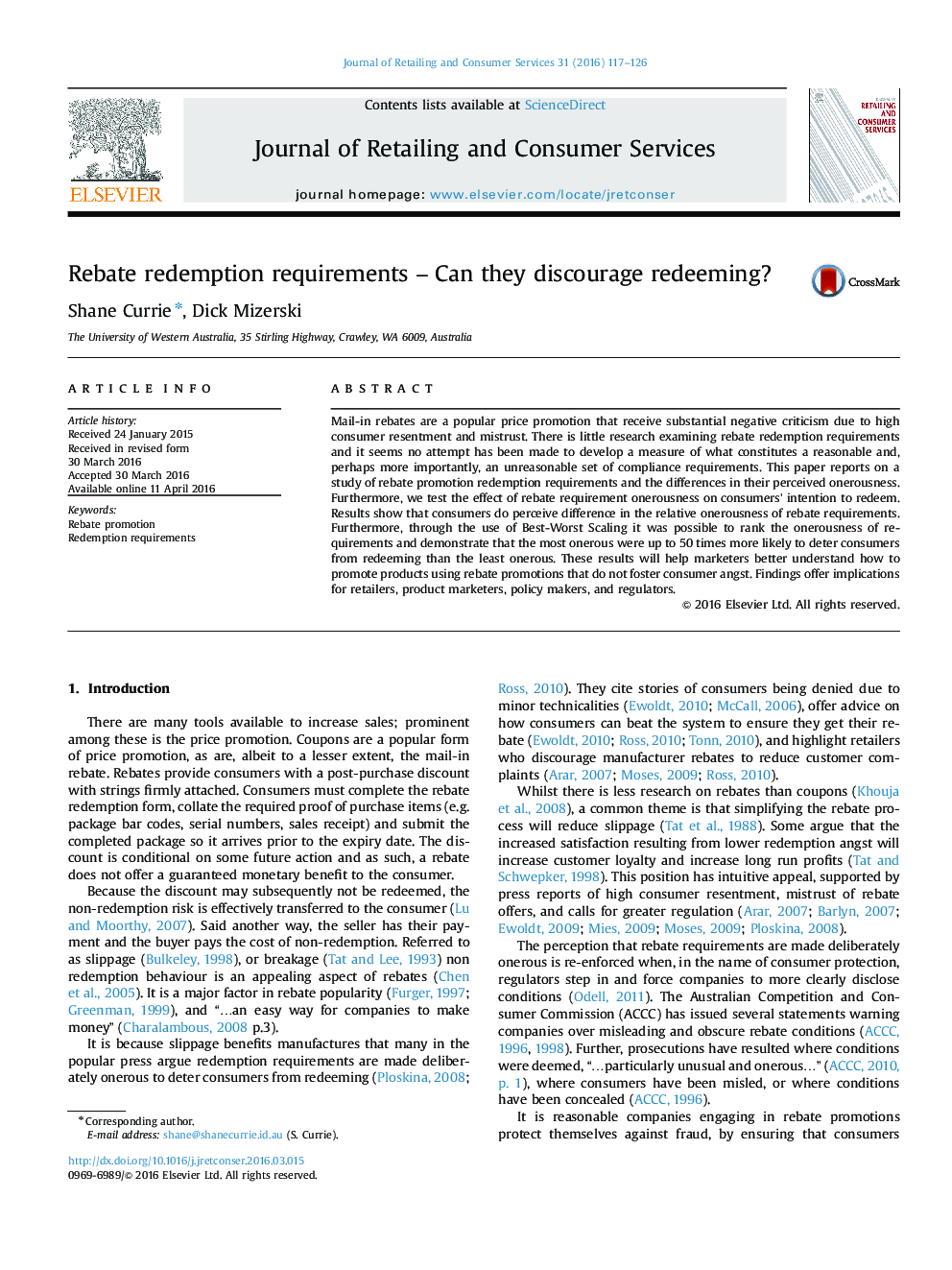| Article ID | Journal | Published Year | Pages | File Type |
|---|---|---|---|---|
| 1028744 | Journal of Retailing and Consumer Services | 2016 | 10 Pages |
•Best-Worst Scaling is used to rank the onerousness of rebate promotion requirements.•It is demonstrated that consumers can distinguish between redemption requirements on the basis of perceived onerous.•The level of perceived onerous does influence consumer's intention to redeem a rebate.•A set of unreasonable compliance requirements is distilled.
Mail-in rebates are a popular price promotion that receive substantial negative criticism due to high consumer resentment and mistrust. There is little research examining rebate redemption requirements and it seems no attempt has been made to develop a measure of what constitutes a reasonable and, perhaps more importantly, an unreasonable set of compliance requirements. This paper reports on a study of rebate promotion redemption requirements and the differences in their perceived onerousness. Furthermore, we test the effect of rebate requirement onerousness on consumers’ intention to redeem. Results show that consumers do perceive difference in the relative onerousness of rebate requirements. Furthermore, through the use of Best-Worst Scaling it was possible to rank the onerousness of requirements and demonstrate that the most onerous were up to 50 times more likely to deter consumers from redeeming than the least onerous. These results will help marketers better understand how to promote products using rebate promotions that do not foster consumer angst. Findings offer implications for retailers, product marketers, policy makers, and regulators.
